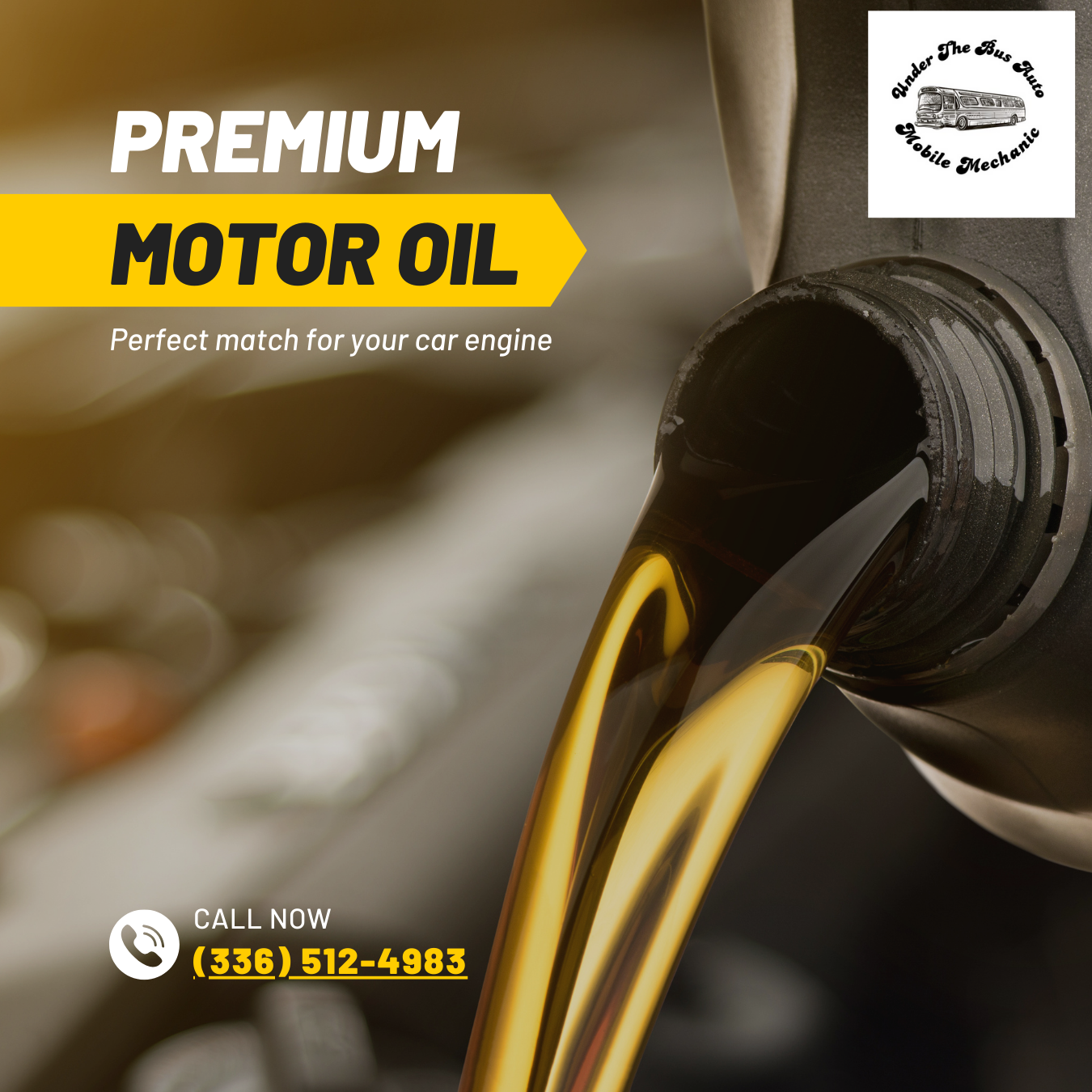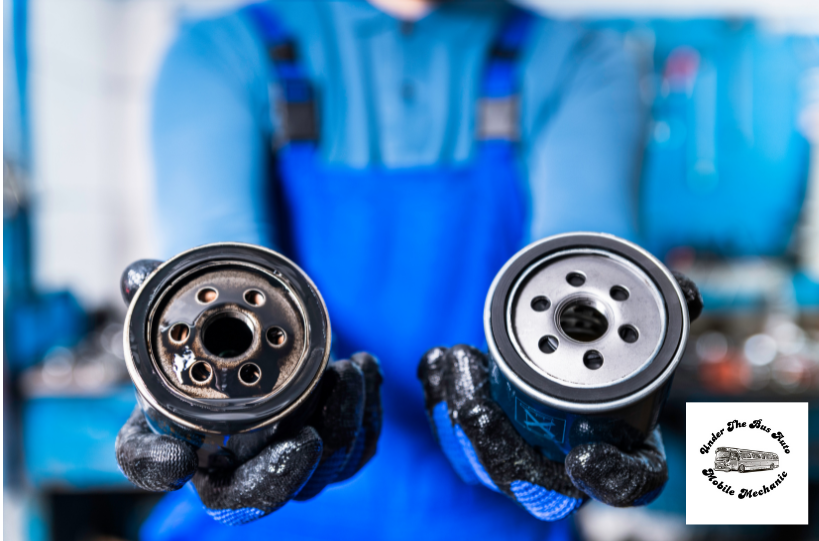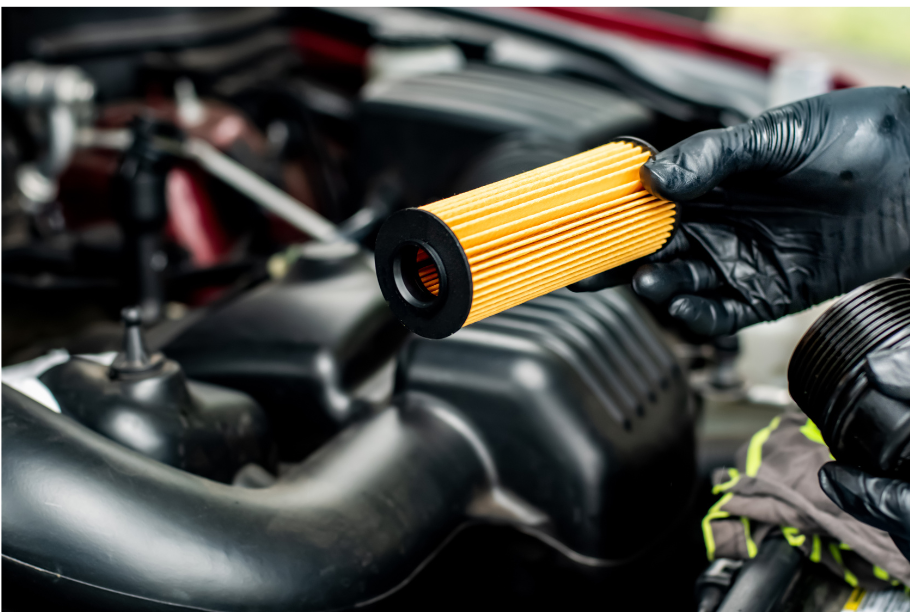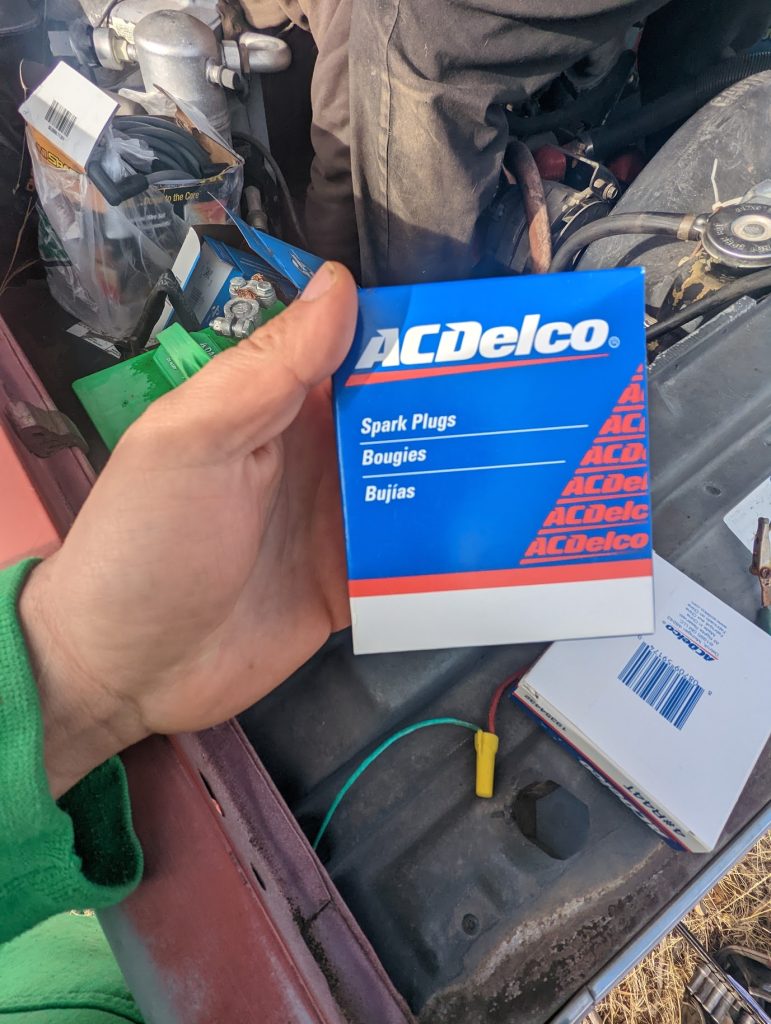Welcome to the driver’s seat! If you’ve ever wondered about the magic lubricant that keeps your vehicle’s heart beating strong, you’re in the right place. We’re diving into the world of engine oil, exploring its critical function in ensuring your engine’s longevity and performance. Regular oil changes are not just a maintenance ritual; they are a lifeline for your car, keeping it running smoothly and efficiently. So buckle up as we unfold how a simple oil change can elevate your driving experience and safeguard your engine’s health.

Comprehensive Maintenance Schedule for Your Car
Regular maintenance extends the life of your vehicle and ensures peak performance. A maintenance schedule becomes the roadmap for keeping your vehicle in top condition.
Creating a Custom Maintenance Calendar for Your Vehicle
Your car is unique, and its maintenance needs vary from that of others. Compile vehicle information, note the quirks of your car and account for your driving habits. Use these insights to create a maintenance calendar tailored to your car’s specific needs.
Aligning Your Schedule with Car Manufacturer Recommendations
Manufacturers provide a baseline for maintenance intervals. Consult your vehicle’s owner manual for recommended service checkpoints. Adapting these recommendations to your calendar ensures you adhere to essential service guidelines while tuning to your vehicle’s unique demands.
Service Reminder Light/System: Your Car’s Built-In Maintenance Alert
Modern vehicles come equipped with a service reminder system. This feature tracks various vehicle operational metrics and alerts you when it’s time for maintenance. Rely on this system as a cue for scheduling services but recognize it does not replace a comprehensive understanding of your car’s maintenance needs.
- Monitor your car’s reminder system alongside your custom calendar
- Use the alerts as prompts to check your maintenance schedule
- Remember, not all maintenance needs will trigger an alert

Dive into Motor Oil Types: Choose What’s Right for Your Vehicle
Understanding the variety of motor oil types ensures the selection aligns with your vehicle’s specific needs. Motor oil is not one-size-fits-all and its composition directly impacts engine function and health.
The Ins and Outs of Synthetic, Conventional, and Blend Oils
Synthetic motor oil, engineered through a chemical synthesis process, provides superior protection. It operates effectively at high temperatures and maintains performance in extreme cold. Conventional oil, derived directly from crude oil, is best suited for light-duty engines and older models. Blended options combine the best of both, offering improved protection at a value-oriented price point over full synthetics.
How to Match Oil Types with Vehicle Requirements
Selecting appropriate motor oil necessitates a look at the vehicle’s owner manual. Automakers specify oil recommendations that correspond to the engine design and expected performance criteria. Overlooking these specifications can lead to suboptimal performance or, worse, engine damage.
Engine-Specific Recommendations for Optimum Performance
High-performance engines, many turbocharged or supercharged require synthetic oil due to its high stress tolerance. Older engines, however, typically benefit from conventional oil’s simplicity and composition, which is often sufficient for less demanding operations.
Manufacturers might endorse particular brands or formulations catering specifically to their vehicles. Adherence to these endorsements fulfills the vehicle’s demands, minimizing friction and wear while maximizing efficiency.
- High-mileage vehicles might require specific oil formulations to ensure seals remain flexible and oil consumption is minimized.
- Diesel engines will need oils designed to handle the unique soot and sludge control necessary for their operation.
- Hybrid vehicles often suggest a specific type of oil that can cope with the frequent on-off cycling of their engines.

Oil Filter Replacement: A Key to Purity
Success in maintaining an engine’s performance lies partially in the quality of its oil filter. This component ensures that contaminants do not re-enter the engine’s lubrication system, guarding against premature wear and tear. In fact, without a functioning oil filter, dirt and debris can cause significant damage, leading to costly repairs.
The Crucial Role of Oil Filters in Engine Protection
A meticulously crafted oil filter intercepts impurities in motor oil, from metal shavings to dust and carbon deposits. Oil that circulates through an uncontaminated filter sustains its integrity, which allows the engine to operate with optimal friction reduction and temperature control.
Signs You Need an Oil Filter Replacement
- A noticeable decrease in engine performance, which may manifest as a stuttering start or lower power output.
- Black smoke or an oil smell inside the car indicates the filter is not capturing all impurities.
- The presence of metallic sounds from the engine bay can be a troubling indicator of unfiltered material causing internal damage.
- An oil pressure warning light on the dashboard often signals that a clogged oil filter is impeding the flow of oil.
Selecting the Right Oil Filter for Your Car
When choosing a replacement, acknowledging the manufacturer’s specifications aligns with the engine’s needs. A filter too small won’t effectively clean the oil, while one too large may not fit or work properly with the engine’s systems. Additionally, high-quality filters often incorporate synthetic fibers, which are adept at capturing smaller particles and have a longer service life compared to conventional counterparts.
Periodic replacement ensures that oil cleanliness is maintained; thus, engine components are safeguarded against the effects of contaminated oil. Integrating filter replacement into routine vehicle service amplifies the benefits of fresh engine oil, preserving an engine’s condition and functionality.
Understanding Mileage Intervals for Oil Change
Gone are the days when a universally recommended 3,000-mile oil change interval was the standard. Recent advancements in oil technology and engine efficiency have redefined the benchmarks for when to get an oil change. This section explores how to pinpoint the right mileage intervals for oil changes, tailored to your specific vehicle and driving patterns.
Debunking the Myth of the Universal Oil Change Interval
Manufacturers have shifted away from the one-size-fits-all approach to oil change timings. Modern vehicles, coupled with high-performance synthetic oils, can safely travel for 5,000 to 10,000 miles or even more before requiring an oil change. The exact figures are specific to each make and model, with recommendations outlined in the owner’s manual for the vehicle.
How to Determine the Ideal Mileage Interval for Your Car
Consult the vehicle’s manual for the manufacturer’s recommended oil change intervals as a starting point. Pay attention to the suggestions distinguishing between “normal” and “severe” driving conditions to assess where your typical usage falls. Utilize onboard maintenance reminder systems if your vehicle is equipped, as they can adjust service needs based on actual driving data.
Adapting Mileage Intervals Based on Driving Habits and Conditions
Driving habits directly affect oil life; frequent short trips, towing, or regular high-speed driving necessitate more frequent changes. Similarly, conditions such as temperature extremes and dusty environments can accelerate oil contamination and degradation, justifying shorter intervals between changes. Assess your routine driving conditions and adjust the oil change frequency accordingly to maintain optimal engine health.

Customizing Your Service to Car Manufacturer Recommendations
Every vehicle rolls off the assembly line with a blueprint for optimal functioning – the car’s manual. Within these pages lies a detailed guide tailored to the unique needs of your car, including the specific oil it requires. Adherence to these guidelines ensures peak performance and longevity for your vehicle’s engine.
Why Adhering to Your Car’s Manual is Critical
Manufacturers invest considerable time and resources into understanding the intricacies of their vehicles’ engines. To dismiss this expertise is to risk the intricate balance designed for your car’s performance and efficiency. By following the manual’s maintenance schedule, including oil changes, you align closely with the intended engineering and design of your vehicle.
The Dangers of Deviating from Manufacturer’s Oil Change Guidelines
Ignoring the recommended guidelines for oil changes can lead to compromised engine integrity. While missing an oil change by a few miles may not immediately spell catastrophe, consistently neglecting these intervals can result in accelerated wear and tear, potential engine damage, and ultimately, significant repair costs.
Leveraging Professional Technicians’ Expertise to Enhance Engine Life
Professional technicians bring a wealth of knowledge, often with specific insights into various car models and their requirements. They use this expertise to affirm that your oil change meets the exacting standards set by the car manufacturer, ensuring that your engine operates smoothly and efficiently for the longest possible time.
The Road to Improved Performance and Efficiency
An engine that benefits from regular oil changes exhibits enhanced performance and efficiency. The fresh oil decreases internal friction, allowing the engine to operate with less effort. This reduced strain optimizes the engine’s power output and responsiveness.
The Direct Impact of Regular Oil Changes on Car Efficiency
Frequent oil changes maintain engine components well-lubricated and minimize wear. This practice sustains engine efficiency over time, diminishing the likelihood of performance degradation.
Performance Gains: Smoother, More Responsive Driving Experience
Drivers notice a smoother, more responsive experience with a well-maintained engine. Replacing old oil with new ensures hydraulic components function correctly and valve timing remains accurate, leading to perceptible improvements in driving quality.
Fuel Efficiency: How Fresh Oil Can Save at the Pump
Saving money at the pump becomes tangible with regular oil changes. Fresh oil possesses optimal viscosity, ensuring smooth engine operation and reducing fuel consumption. Over time, this results in significant savings on fuel expenses.
- A less burdened engine demands less fuel
- Reduced friction betters fuel economy
- Regular service intervals align with improved fuel efficiency metrics
Engine Longevity: Invest in the Future of Your Vehicle
Regular oil changes lay the groundwork for your vehicle’s prolonged performance and robust health. This essential maintenance task not only keeps your engine running smoothly but also contributes substantially to its longevity.
Long-Term Benefits of Regular Oil Changes
Fresh oil maintains lubrication levels, ensuring that engine components work effortlessly together. This reduces wear on the engine and prevents excess heat buildup. Over time, an engine running on clean oil will typically outlast one that has been subjected to infrequent oil changes.
Proactive Vehicle Care to Avoid Costly Repairs
Considering oil as the lifeblood of an engine allows for a broader understanding of its significance. Dirt, debris, and metal shavings accumulate in oil over time; failing to remove these contaminants regularly can lead to severe engine damage. By scheduling regular oil changes, you preemptively address threats, reducing the risk of costly repairs synonymous with engine neglect.
How Oil Changes Protect Your Engine Well Beyond the Warranty Period
Adherence to a diligent oil change routine maintains the engine in peak condition well after the expiration of the manufacturer’s warranty. This practice not only preserves the intrinsic value of your vehicle but also ensures that the engine remains robust and reliable, ready to exceed its expected service life with ease.
- Ensures all moving parts are well-lubricated and free from excess friction.
- Dissipates engine heat, warding off overheating.
- Prevents sludge formation which can be a death sentence for any engine.
- Contributes to a cleaner and healthier engine environment, encouraging optimal performance.
Maintaining an attentive approach to vehicle maintenance, especially with regard to oil changes, paves the way for a formidable and lasting engine. Not only do you invest in the reliability and functionality of your vehicle now, but you also lay down the foundation for its unwavering service in the future.
The True Value of Lubrication Benefits
Proper lubrication reaches beyond the surface of engine components. By reducing wear and tear, the longevity of the engine is dramatically increased, effectively multiplying the return on every oil change investment. The lubrication process facilitates a smoother ride and higher efficiency, which translate into cost savings and more enjoyable driving experiences.
A Closer Look at How Proper Lubrication Ensures Engine Functionality
Molecular engineering of modern motor oils creates a protective barrier on metal surfaces. This barrier acts as a safeguard against the detrimental effects of metal-on-metal contact, thus maintaining the integrity of the engine’s moving parts. Consequently, engines maintain their designed performance parameters over much longer periods.
Preventing Friction and Overheating: The Unsung Heroes of Oil Change
Motor oil circulates throughout the engine, acting as a heat transfer medium. Its presence ensures temperatures remain within safe limits, even under extreme conditions. Regular oil changes discharge worn-out oil filled with engine-damaging particulates while replenishing the engine with fresh oil that’s more effective at heat absorption and dissipation.
A Technician’s Role in Ensuring Optimal Lubrication During Service
During a service, seasoned technicians evaluate oil condition, assess viscosity requirements, and recommend the appropriate motor oil. Their expertise guarantees that the lubricant chosen will perform optimally across the full spectrum of operating conditions. This professional assessment and application ensure engines are safeguarded to the maximum potential.
- Do you know how to select the right lubricant for your vehicle’s specific needs?
- Can you identify when your engine’s lubrication is no longer providing optimal protection?
Regular oil changes combat the inevitable degradation that comes with time and use. By maintaining a schedule aligned with manufacturer guidelines, your vehicle benefits from the full spectrum of lubrication perks, ensuring peak performance day in and day out.
Spotting the Warning Signs of Old Oil
Recognize the indicators that your car’s oil may need a change. An array of visual, auditory, and sensory signs emerge as engine oil degrades. Your ability to identify these can be crucial in maintaining your car’s performance and extending its lifespan. Let’s explore what to look for.
Visual, Auditory, and Sensory Clues Your Car Needs an Oil Change
Take notice of the oil texture and color; fresh oil should appear amber and smooth, whereas darker, grittier oil suggests contamination. Should you hear knocking or ticking noises from your engine, consider it a prompt to check the oil, as these sounds often arise from inadequate lubrication. Moreover, if you feel increased engine vibration or rough running, it could indicate the oil is losing its efficacy at reducing friction.
Responding to Your Vehicle’s Service Reminder Light/System
Modern vehicles come equipped with a service reminder system that alerts you when it’s time for an oil change. Responding promptly to these alerts can safeguard your engine and ensure optimal performance. Reset this system only after an oil change to maintain its accuracy.
Customer Education: Empowering Owners to Recognize Oil Change Needs
Become attuned to what your car tells you about its oil change needs. Educate yourself on the manufacturer’s guidelines for oil change intervals and become familiar with your vehicle’s specific service reminder features. Armed with this knowledge, you can make informed decisions about vehicle maintenance.
How Does Weather Shape Your Oil Change Schedule?
Different climates dictate the flow characteristics, or viscosity, of the motor oil in your vehicle. Motor oil thickens in cold temperatures and thins out in hot climates. To maintain peak engine performance, selecting an oil with the appropriate viscosity for your climate is non-negotiable.
Consider this: High viscosity oil, ideal for warmer temperatures, could turn sluggish in a frigid climate, failing to lubricate the engine effectively. Conversely, oil with low viscosity might prove too thin to protect engine components from wear and tear under the extreme heat.
Tailoring Oil Viscosity Selection to Seasonal Needs
- Winter: Technicians typically recommend oils with lower viscosity. The thinner oil circulates more readily, ensuring components remain well-lubricated even in cold-start conditions.
- Summer: Higher viscosity oils are favored as they maintain film strength and protect the engine under high-temperature operations.
Climate Considerations: Ensuring Your Car Adapts with the Environment
Adapting your oil selection based on the seasonal changes ensures the engine runs optimally. You may need a different oil grade for summer’s high temperatures than you would during the winter months. Manufacturers provide a range of recommended oils based on temperature in the owner’s manual; refer to these guidelines when selecting oil.
Expert Advice: Technicians’ Tips for Weather-proofing Your Oil Change Routine
Experienced service technicians suggest annual evaluations of your oil change routine in relation to your local climate. If you reside in a region with significant temperature swings, the advice might include adjusting your oil change frequency in conjunction with changing viscosity needs. A vehicle in a stable climate might not require such adjustments.
A proactive approach involves monitoring your driving patterns along with the seasons. Frequent short trips in cold weather can lead to moisture accumulation in the oil, necessitating more frequent changes. However, continuous long-distance driving in a hot and dry climate could allow for extended intervals between oil changes due to consistent engine temperatures and less moisture retention.
Unlock Long-Term Savings with Regular Oil Maintenance
Adhering to a consistent oil change schedule translates to considerable financial benefits over the lifespan of a vehicle. Routine oil changes maintain engine efficiency, which in turn optimizes fuel consumption. By requiring less fuel to operate, you save money on an ongoing basis – a sum that can accumulate to a significant amount.
Delayed oil changes often result in escalated engine wear, causing a drop in performance and the onset of costly repairs. A vehicle operating with contaminated oil demands more fuel and may experience a range of engine complications. These range from minor issues, which are inexpensive to fix, to major malfunctions that could lead to engine replacement — a severe financial burden.
Keeping your engine in exemplary condition through regular maintenance sidesteps the possibility of incurring these severe expenses. A well-lubricated engine runs smoother, reduces wear on components, and extends the overall lifespan of your vehicle, sustaining its value for a potential resale. Furthermore, preventive maintenance guards against the likelihood of facing emergency breakdowns that not only interrupt your life but hit your wallet unexpectedly.
Reflect on the potential savings that accrue from a well-maintained vehicle. Avoid the domino effect of damage your car might encounter when operating with old, ineffective oil. Investing in regular oil changes is a proactive step towards safeguarding your vehicle’s health and your financial resources.
Comparing the Professional vs. DIY Oil Change
When deciding on changing your car’s oil, the choice rests between the meticulous expertise of a professional service or embracing the challenge of a DIY oil change. Each option carries its distinct set of advantages and considerations.
Choosing Between a Technician’s Touch and a Home Garage Change
Deciding whether to take your vehicle to a professional or to change the oil yourself depends on a variety of factors including time, cost, and skill level. Professionals bring experience, high-end products, and comprehensive checks, while DIY can offer savings and a sense of personal achievement.
Professional Service: Assurance of Quality and Expertise
A professional oil change provides more than just new oil. Mechanics have the skills to spot potential problems, ensuring that your vehicle operates at peak performance. They offer a systematic approach that includes disposing of old oil, replacing the filter, and performing a multipoint inspection.
DIY Oil Change: Understanding the Requirements and Risks
Changing oil independently requires knowledge, tools, and patience. You will need to understand your vehicle’s specific oil type and capacity, have the correct tools and a space to work, and be ready to correctly dispose of the old oil. While it can be more cost-effective, an improperly performed oil change can lead to engine damage.
- Knowledge of car mechanics and the right tools lead to a successful DIY oil change.
- Professional oil changes come with the convenience of expert service and thorough inspections.
- The experience of changing your car’s oil can reinforce your understanding of vehicle maintenance.
- Time invested in learning the oil change process can save money and enhance personal satisfaction.
Responsible Environmental Disposal of Used Oil
Every time a vehicle undergoes an oil change, a significant amount of used oil emerges as a byproduct. This used oil holds contaminants but also retains its lubricating properties. Consequently, while it’s no longer suitable for engines, it’s a potential contaminant if not disposed of correctly.
The Importance of Proper Oil Disposal for Environmental Protection
Disposing of used oil incorrectly leads to soil and water contamination. A single gallon of oil can taint a million gallons of water, equal to a year’s supply for fifty people. Hence, proper disposal not only protects the environment but also conserves a valuable resource.
How Our Service Ensures Eco-Friendly Disposal of Used Oil
Dedicated services expertly handle and recycle used oil, taking measures to avoid environmental damage. Certified professionals collect the oil, which then undergoes a refining process to become usable once more. This ensures that every drop of used oil is properly channeled back into productive use instead of polluting ecosystems.
Educating Customers on the Impact of Responsible Oil Disposal
Understanding the consequences of improper disposal prompts better practices. For instance, reused oil can serve as industrial burner fuel, or re-refined back into new lubricating oil. Providing this knowledge encourages vehicle owners to partake in environmentally responsible behaviors.
- Used oil requires careful handling to shield the environment from potential harm.
- Oil recycling safeguards natural resources and mitigates the risk of pollution.
- Educational initiatives about oil recycling benefits foster community participation in environmental protection.
Supplementary Vehicle Services: Beyond the Oil Change
While an oil change is a fundamental procedure for vehicle health, additional services ensure comprehensive maintenance. These services complement oil changes and contribute to vehicle reliability, safety, and performance.
Comprehensive Maintenance Checks with Every Oil Change
Upon receiving an oil change, technicians typically examine various vehicle components. Inspections include checking the brake fluid, coolant levels, and air filters. These checks provide a snapshot of your vehicle’s condition, offering an opportunity to address potential issues proactively.
The Importance of Tire Inspection and Rotation for Overall Efficiency
Tire inspections assess wear patterns, which can reveal alignment issues. Properly rotated tires achieve more uniform wear, extending their lifespan and improving fuel efficiency. As tires are the point of contact with the road, regular inspections ensure optimal traction and safety.
Bundle Services: An Efficient Solution for Busy Vehicle Owners
Owners who value time and convenience often choose bundled services when their vehicle undergoes an oil change. These bundles might include windshield wiper replacements, battery tests, or light bulb checks. Such combinations reduce service time and often come at a discounted rate, eliminating the need for multiple appointments.
- Regular maintenance checks can prevent minor issues from evolving into major repairs.
- Tire rotations extend tread life and contribute to balanced handling.
- Bundling services saves time and can be cost-effective while ensuring thorough vehicle care.

Secure Your Engine’s Future Now
Regular, quality oil changes are the linchpin of engine health. Each complete oil change replenishes your engine with fresh lubricant, ensuring smooth operation and preventing undue wear and tear. Without this essential maintenance, engines accumulate contaminants which compromise performance and ultimately, the longevity of your vehicle.
To reward your commitment to vehicle maintenance, special offers await both first-time and returning customers. Whether embarking on a long-term car care journey or continuing an established routine, these deals are designed to afford you maximum value in maintaining your automobile’s vigor.
Scheduling an appointment is a seamless process, tailored to fit into your busy life. With professional oil change services, you tap into expertise that guarantees your engine receives the best possible care. Take the step today — schedule an oil change and secure the well-being of your vehicle with immediate effect.
FAQs and Concerns: We’re Here to Help
Got questions about oil changes? Let’s address some common queries and clear up any confusion surrounding motor oils and engine maintenance. With accurate, evidence-based answers, you’ll feel assured and informed when it comes to taking care of your vehicle.
Addressing Common Questions About Oil Change Services
- How often should I change my oil? The frequency of oil changes depends on your vehicle model, driving habits, and the type of oil used. Refer to your car’s manual for the manufacturer’s recommended interval, but a general guideline is every 3,000 to 5,000 miles for conventional oil.
- Can I switch motor oil types? Yes, you can switch between synthetic and conventional oils, but it’s best to consult with a technician who can advise on the optimal choice for your vehicle.
- Does an oil change include a filter replacement? A proper oil change service always includes replacing the oil filter to ensure your engine is not contaminated with the old filter’s accumulated debris.
Debunking Myths Surrounding Motor Oils and Engine Maintenance
- Myth: Synthetic oil can harm older engines. Contrary to this belief, synthetic oil can be beneficial for older engines due to its superior lubrication qualities and resistance to temperature extremes.
- Myth: If the oil is black, it needs to be changed immediately. Not necessarily. Oil darkens as it works to clean your engine; color alone isn’t an indicator of oil performance or quality.
Assurance of Support: Our Commitment to Customer Satisfaction
Understandably, you might have more inquiries or require guidance on specific concerns related to your vehicle. You’re encouraged to reach out directly. A dedicated team will assist with your unique needs and ensure your vehicle receives the precise care it deserves.